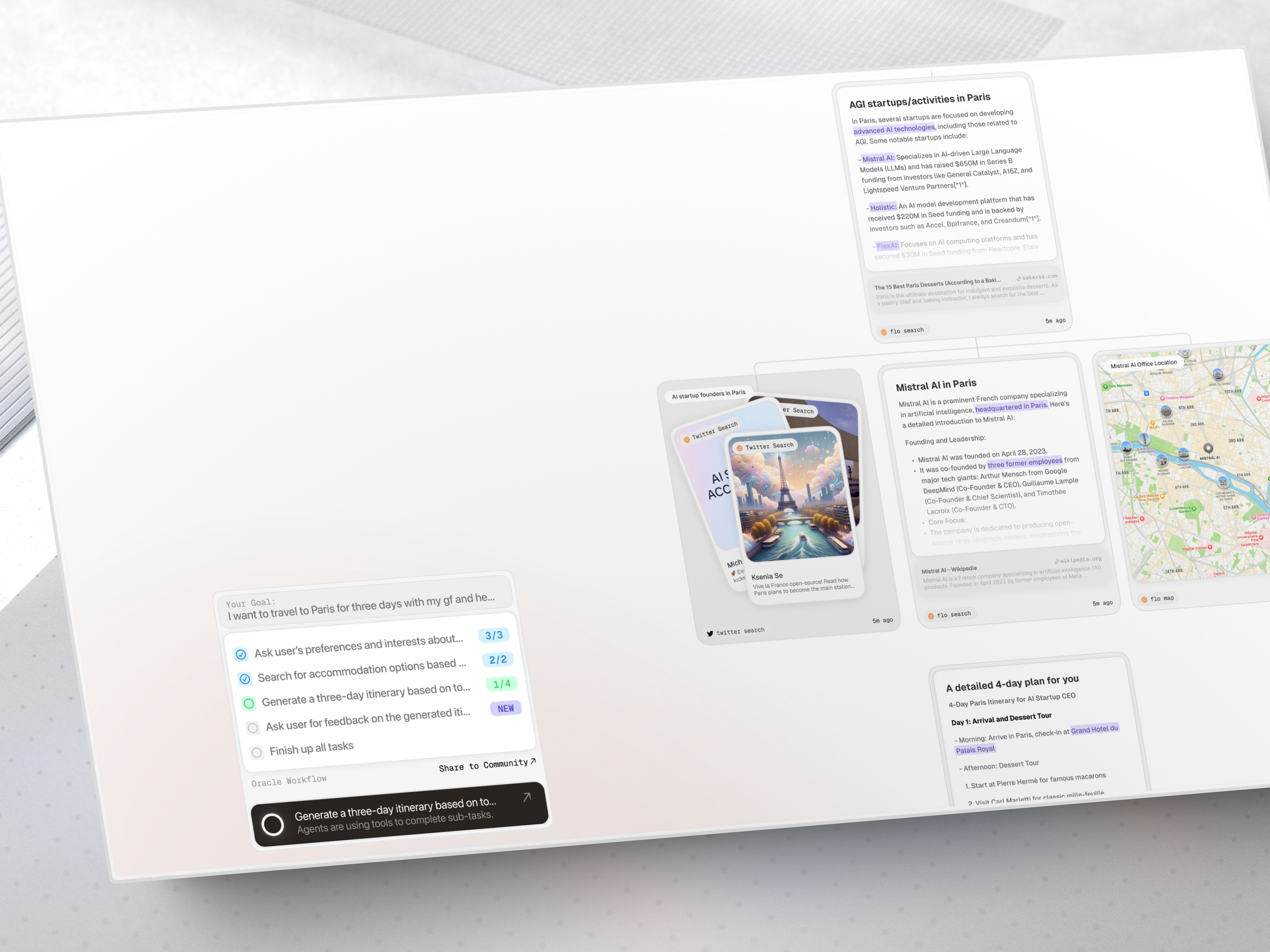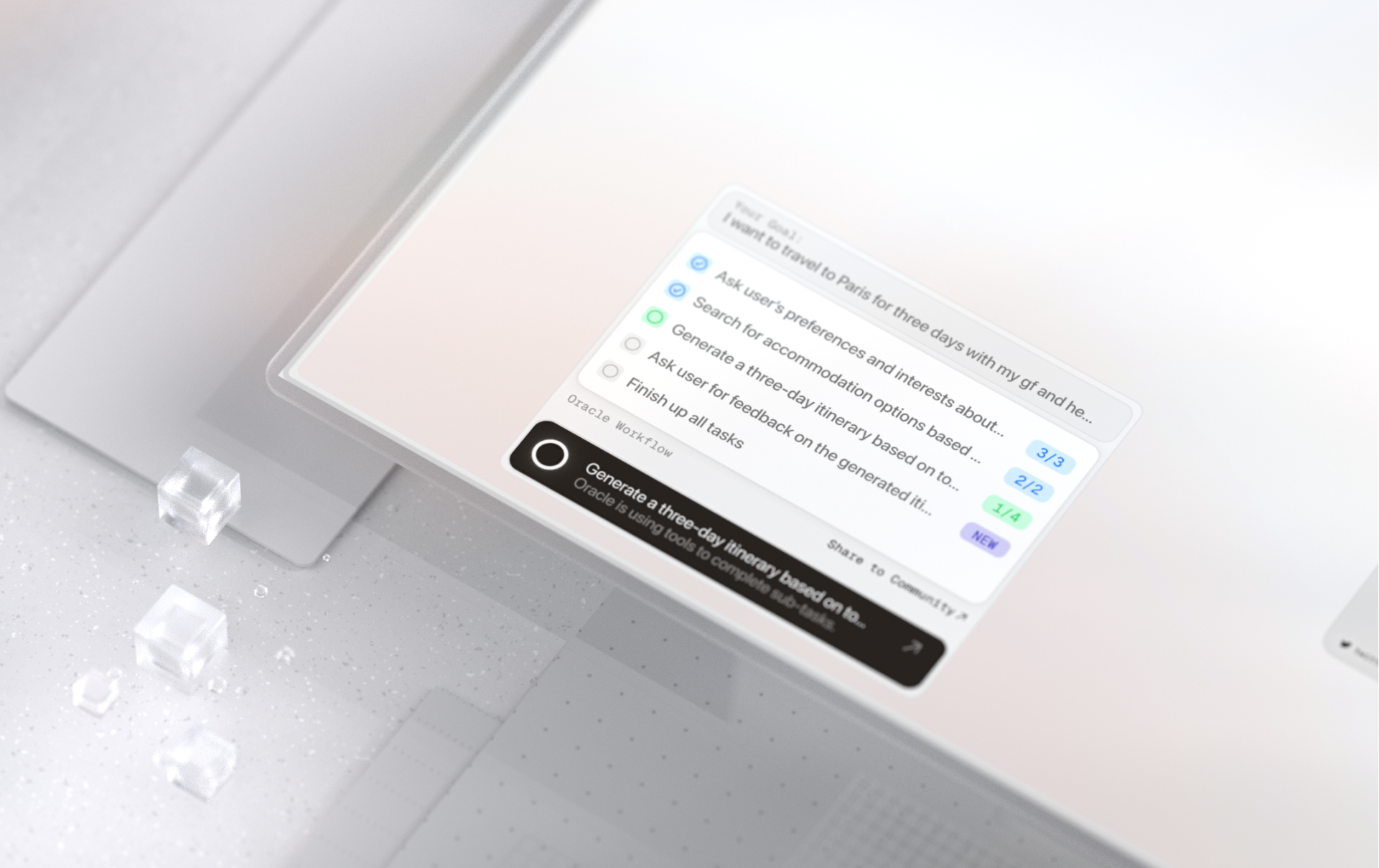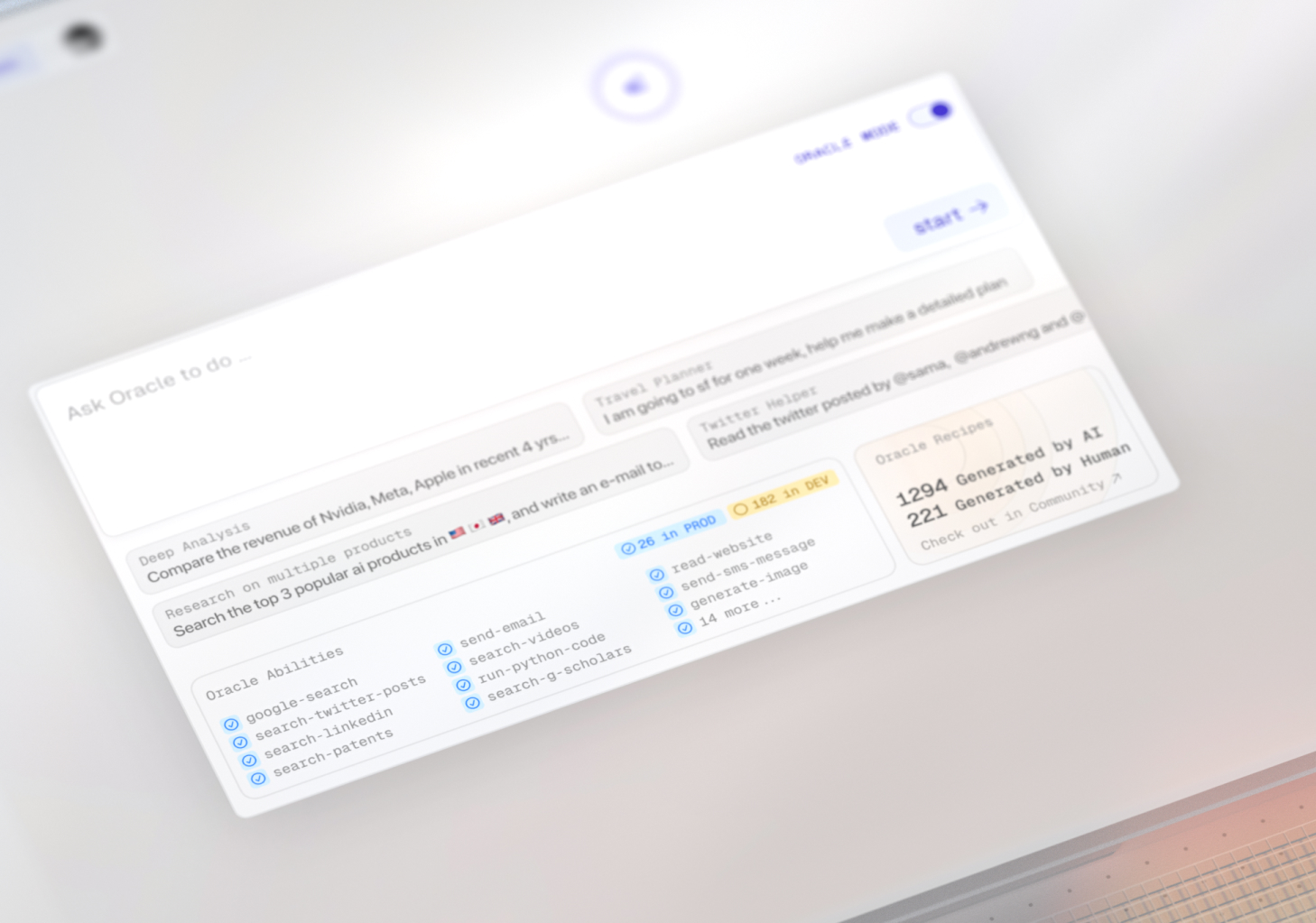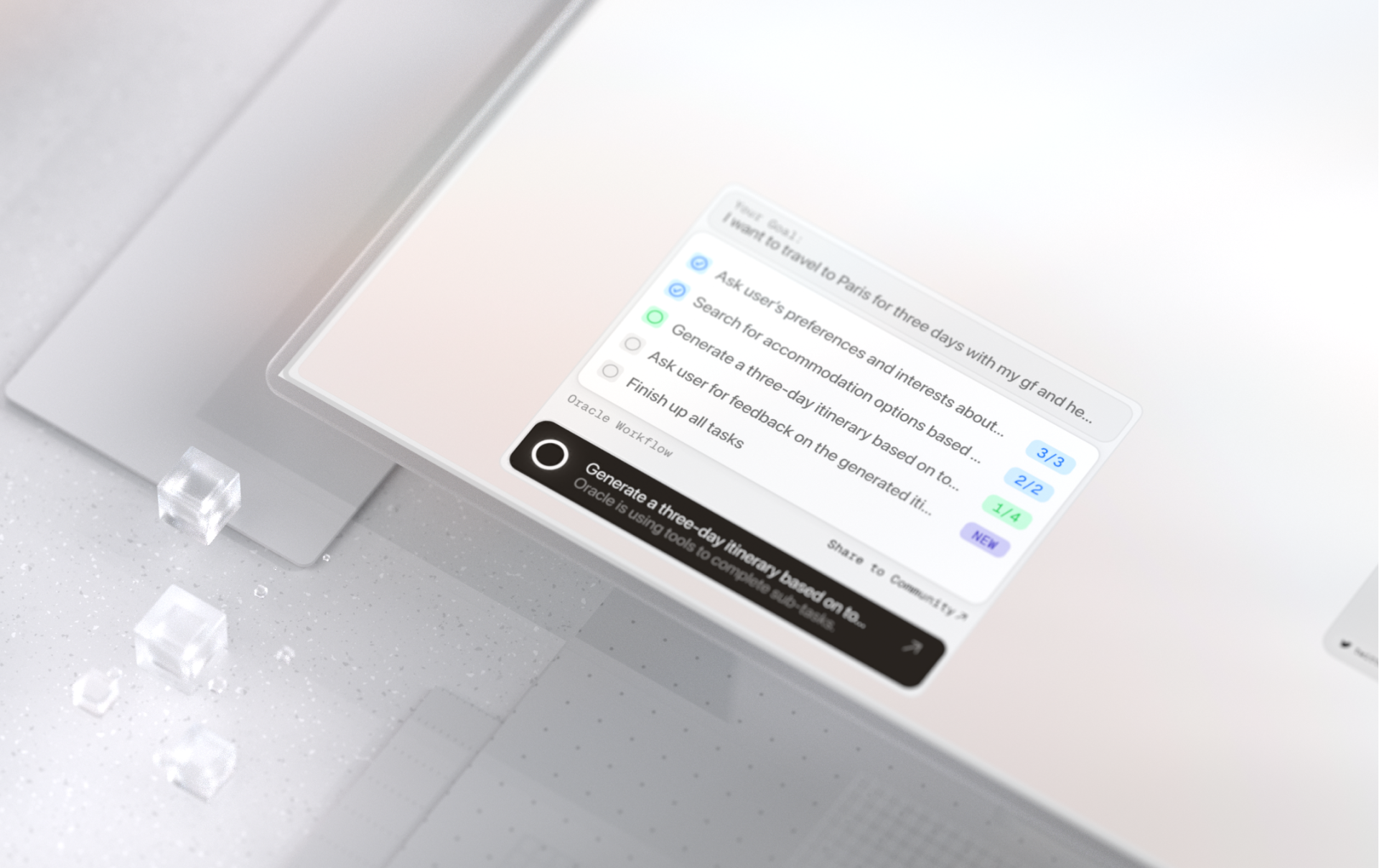Neo について
What is Agent Neo?
Agent Neo is a cutting-edge intelligent agent designed by the Flowith team to autonomously handle complex, multi-step tasks. It represents an evolution beyond static, pre-planned execution agents, operating with a dynamic and adaptive methodology.
Key characteristics of Neo include:
Autonomous: Interprets high-level goals and works independently toward a solution.
Dynamic: Adapts its approach in real-time based on new information and the results of previous actions.
Tool-Oriented: Utilizes a diverse and expanding set of tools to gather information, process data, and execute actions.
Self-Correcting: Identifies failures or insufficient results and modifies its strategy to overcome obstacles and achieve the goal.
Neo's external capabilities are continuously updated and upgraded, allowing it to become increasingly powerful over time.

In other words, Neo is a data-level (operating at the data layer, without physical medium or real-world interaction) generalized (capable of performing general tasks, not limited to pre-trained or pre-defined functions) Agent (beyond just an LLM, able to utilize tools, manage memory, and collaborate with multiple LLMs) that can complete complex tasks (beyond simple queries or commands) and adapt to new situations (capable of self-learning and processing in novel environments or tasks).
Core Philosophy: From Static Plans to Dynamic Recipes
The term "Recipe" originally refers to a set of instructions for preparing a dish. In the context of Neo, a Recipe represents a systematic workflow that AI executes to complete user tasks. When a user inputs a requirement or instruction, Neo breaks down the overall directive into smaller subtasks based on its capabilities and available tools. These subtasks are then passed to a task allocator for step-by-step execution.
A Recipe is a living, evolving set of instructions that Neo builds and refines as it works, not just a fixed list created at the beginning. This dynamic approach is more effective for complex problems where the full path to a solution is not knowable in advance, allowing Neo to navigate uncertainty and adapt to new discoveries.

The Anatomy of a Neo Task: Core Concept
The Dynamic Recipe: Neo's Evolving Strategy
A Recipe is the real-time sequence of steps Neo executes. It is generated step-by-step during the task, with each new action informed by the outcome of the previous one. Users can monitor this process through a live execution log, which provides transparency into Neo's "thought process" as it happens.
The flow is cyclical and adaptive:
Goal -> First Step -> Execution -> Result Analysis -> Next Step -> ... -> Completion
The Dispatcher & Tools: Neo's Capabilities
The Dispatcher, also known as a Task Allocator, is a crucial component in the execution of subtasks generated by Neo. For each Neo-generated subtask, a dedicated Agent within the Dispatcher is responsible for allocation and implementation. This Agent identifies the most suitable tool from Neo's supported toolset and then executes and completes the subtask.
For example, when the subtask is "search for user reviews of flowith on social media", the task allocator will invoke the "online_search" and "read_single_webpage" to conduct searches for Flowith user reviews.
You can view the currently supported tools for Neo on the Neo conversation initiation page. This list is updated in real-time, and we continuously add the most useful tools to Oracle's supported toolkit.
Oracle がサポートする現在の機能
Intelligent Context & Memory Management
Complex tasks often generate extensive context. To maintain efficiency and accuracy, Neo employs an intelligent memory manager. For each step, the manager evaluates which information from previous steps is essential and injects only the necessary context. This prevents context overload and ensures the Large Language Model (LLM) can focus on the most relevant data for the current subtask.
Adaptation and Self-Correction
Neo's ability to self-correct is central to its power. The entire Recipe is fluid and can be altered mid-execution based on real-time results. This adaptation is triggered automatically by events such as:
Tool Failure: If a tool returns an error or no results, Neo will automatically try a different tool or rephrase its query.
Unsatisfactory Results: If the information gathered is insufficient, Neo will autonomously add new steps to find more data.
New Discoveries: Information found in one step can completely change the subsequent steps in the Recipe.
Example of Adaptation:
Goal: "Summarize recent AI hardware announcements."
Step 1: Neo uses
Google Search
for "AI hardware announcements 2025".
Result: Results are mixed, including news articles and one press release for a "Project Chimera" chip.
Adaptation: Neo identifies "Project Chimera" as a key term and creates a new sub-task to investigate it.
Step 2: Neo performs a new, targeted search for
"Project Chimera" chip specifications
Last updated
